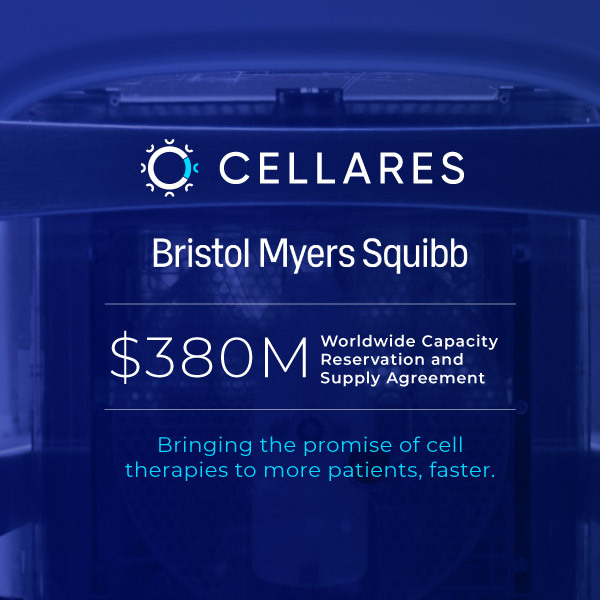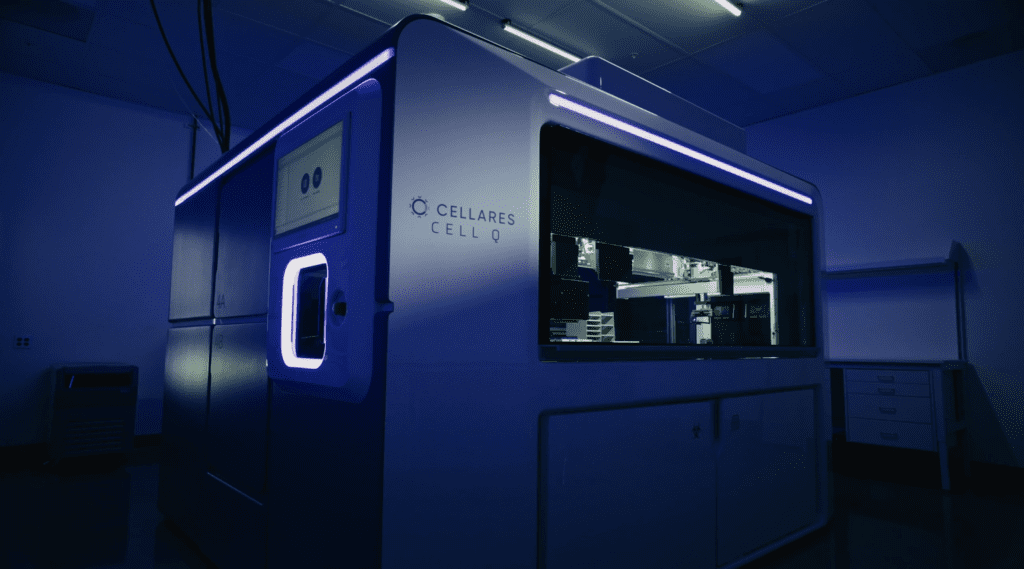Justin Butler, Partner at Eclipse Ventures and Cellares Board member shares a personal perspective in this blog post, originally posted on October 29th, 2020.
Living with Stage IV cancer is a dual reality – one reality is counting your days left on this planet with extreme precision, the other is hoping for a miracle that you are “the one” that defies the odds. I lived this duality with my wife as she battled her own terminal cancer. Once the doctors told us that there was nothing that could save her, the chasm between these two realities widened.
As we bounced back and forth during those days, I frantically searched for any experimental clinical trials that could have an impact, and came across a class of drugs known as cell therapies. Reading more about this new technology revealed a world where a patient’s own cells could be genetically modified to recognize and fight their own cancer. And it was working. Patients who were previously on their deathbed after their cancer evaded traditional treatments were transitioning to full remission after receiving a single dose of cell therapy. They were all becoming “the one,” and the gap between their two realities was shrinking.
Unfortunately, these treatments were not yet at a stage in which they were able to help my wife, but I could not stop thinking about their impact, and more importantly, the challenges they faced in treating as many patients as possible. As my research progressed, I discovered that cell therapies are creating a fundamental shift in biopharmaceutical manufacturing. Historically, drugs are made in small batches during preclinical production, and then in large batches for full-scale commercial manufacturing to meet the volume and cost requirements of the market. Cell therapies, however, are not able to take advantage of these economies of scale, as every patient product is a single batch. In other words, for each patient, the entire manufacturing process needs to be executed – multiple steps, multiple technologies, and zero room for error.
It became quickly apparent that there was a disconnect in the industry between the science and the commercial production capabilities. Manufacturing in the pharmaceutical industry is a $100B annual business but has not seen this kind of fundamental change since the advent of modern biotechnology in the 1980s. The industry needs to evolve its supply chain and manufacturing practices to adopt automation, modularity, and scalability – and we at Eclipse were going to find a way to make it happen. We started our search in late 2017 for a team that had a vision aligned with ours to bring modern manufacturing hardware and software capabilities to the cell therapy and broader pharmaceutical industries.
It wasn’t until the spring of 2019 at a Cooley Healthcare Conference that I met Fabian Gerlinghaus. Over lunch, Fabian shared his vision for a new cell therapy manufacturing company. His plan to build a fully automated, enclosed, and modular system hit the fundamental metrics that would be required to be successful in the market.
Over the following weeks, our team at Eclipse Ventures got to know Fabian and his co-founders, Omar and Alex. We quickly realized they were the right team to execute on the mission. In August 2019, we led an $18M Series A alongside our partners 8VC and EcoR1 Capital. Shortly thereafter, Dr. Carl June, a pioneer in the cell therapy field, recognized for his groundbreaking work in the development and commercialization of T-cell therapies, enthusiastically joined their advisory board.
Today, we’re proud to announce that The Fred Hutchinson Cancer Research Center, a world leader in translating new therapies from the lab to the clinic, is the first organization to join Cellares’ Early Access Partnership Program. This partnership will accelerate access to the Cellares technology in a clinical context and bring more of these drugs to market faster, and at a lower cost.
There is still a long way to go in the battle against cancer, but we’re looking forward to working closely with our partners in driving this industrial evolution — and, reducing the gap between the two realities.



